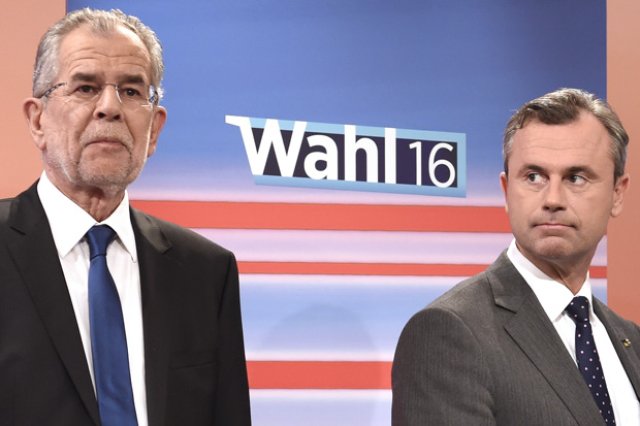
Austria elected its president on May 22 in the second round of voting, with the neoliberal green candidate Alexander Van der Bellen narrowly beating far-right Freedom Party (FPÖ) candidate Norbert Hofer with 50.3% of the vote.
The FPÖ, a right-wing populist and authoritarian German nationalist party of former leader Jörg Haider, was founded in the 1950s. It was a political party for ex-Nazis who never broke with their Nazi tradition.
The fact that a right-wing extremist candidate was prevented from becoming president at the last minute is cause for relief and joy, but by no means reason for complacency. The FPÖ's new motto is “If not president, then chancellor”.
The election has brought about a qualitative shift in Austria's political landscape and its relevance in Europe. The political system as we know it is history: for the first time since World War II, no candidate from the Social Democrats (SPÖ) or the conservative People's Party (ÖVP) reached the second round of the elections.
There will probably be early parliamentary elections in Austria before the scheduled date in 2018. Polls are predicting that the FPÖ might become the strongest party.
The change of leadership of the Social Democrats has led to a temporary surge in sympathy. However, these changes have not brought about the much-needed change in politics that could prevent them from losing the electorate's support.
The office of the president has always been politically irrelevant in Austria. The president's role has, traditionally, resembled that of the British queen. It consists largely of undertaking representational duties, such as the swearing-in of the government and the routine signing of laws. The Austrian Communist Party is demanding the abolition of this office.
However, the Austrian president can exercise certain powers; he or she may dismiss the government and nominate a new chancellor and ministries — or may dissolve parliament. Also, theoretically, the president is commander in chief of Austria's armed forces.
The rise of the extreme right in Austria is part of a European trend. Fuelled by authoritarian solutions to the economic crisis, the acceptance and popularity of right-wing populists and the far right is on the rise in nearly all European countries.
In 2000, when the FPÖ became Austria's second-strongest party with 26% of the votes and entered government with the ÖVP, there was an international outcry. The European Union even imposed sanctions against Austria.
There was no outcry following right-wing politician Viktor Orbán's ascension to power in Hungary in 2010 — the whole political landscape had already shifted towards the right.
The struggle against the right can only be won if the left provides credible social and democratic alternatives. In the countries of central Europe with leading far-right parties (Hungary, Poland and also Slovakia, where a far-right group is part of the governing coalition), as well as in Austria, there are no parties to the left of the SPÖ and Greens in parliament.
In Austria, this electoral alternative has been prevented by widespread anti-Communism and the “Social Partnership” system — a class compromise corporative system.
After the first round of elections, no broad campaign against the far right was built — there has been no republican mobilisation against the FPÖ candidate, who is a member of a German nationalist fraternity that regards Austria to be part of the German nation.
Both the SPÖ and ÖVP, whose candidates failed to enter the second round of the elections, did not endorse Van der Bellen. It seems that parts of both parties did not want to turn against their potential future coalition partner in the FPÖ.
Many prominent intellectuals and artists, however, called on the public to vote for Van der Bellen. Certain (former) conservative politicians and some prominent Social Democrats declared they would vote for Van der Bellen. Furthermore, the Austrian left, including the Communist Party, supported the green candidate.
Now, the challenge for the Austrian left will be to join forces and build alliances to achieve change in society. Those who stand for a just and progressive political orientation should be actively involved in this process.
To this end, there will be a broad conference organised by the Austrian left on June 4.
[Abridged from Transform! Network.]
Like the article? Subscribe to Green Left now! You can also like us on Facebook and follow us on Twitter.